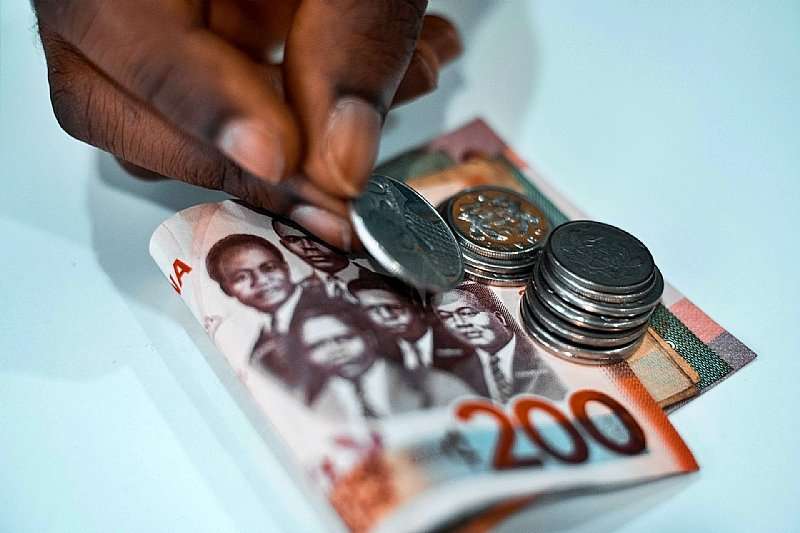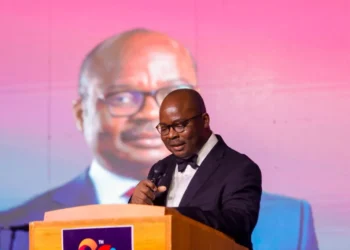A Research Fellow at the Centre for Social Policy Studies (CSPS) at the University of Ghana has called for a review of the Act that limits Central Bank’s financing in order to make it possible for the Bank of Ghana to lend directly to the government to enable it undertake its developmental programs.
Dr. Kwadwo Opoku said this can be an alternative for the government since it cannot bank its hopes on the yet-to-be implemented levy on electronic transactions (E-Levy) to raise substantial revenues this year. He indicated that the inability of the government to borrow from the central bank is among the reasons why government is forced to borrow from external sources.
Per his calculations, the actual amount borrowed between 2017 to 2021 was around $126 billion and the rest of the country’s accumulated debts were due to high interest payments, financial sector clean-up and the energy sector debt.

“I think that the position that the Central Bank should not lend to government is actually wrong. Once you stop the Central Bank from lending to government, the government is going to resort to external borrowing; … Once they borrow externally, they don’t use Cedis to pay back. You realize that once you borrow externally and your exchange rate increases, it affects your debt; it also affects your credit risk and even more. I think, for me, the central bank should lend to the government but it shouldn’t be government that determines how much should be lent”.
Dr. Kwadwo Opoku
Dr. Opoku told the Vaultz News that since the government sells securities each year which are mostly purchased by commercial banks, the Bank of Ghana should rather look at the GDP projections for the year and pump some amount of money into the economy. This amount, he said, should be enough to propel growth without significantly increasing inflation.
Issuing of government securities costly
The Economist explained that the current practice where government issues securities to raise money is rather costly as the government must pay the principal in addition to the interest on these loans. He indicated that in 2020 when COVID started, the central bank embarked on an asset purchase program in which it bought back securities which banks had already purchased in order to put more money into the system.
“Every year, they [Central Bank] know the amount of money that they will put into the system, what they do is that, they give it to the commercial banks. So, if you do that, why don’t you give that money to the government because government will demand those monies; whether you like it or not, they will demand. You will give these monies to the commercials banks and the commercial banks will end up purchasing government securities as a form of loan. Rather than giving it to commercial banks, I think it should be given as a loan to government. So, I think that the law in the Bank of Ghana Act, I think there’s a problem with it; there is the need for them to do something about it”.
Dr. Kwadwo Opoku
Dr. Opoku indicated that in economics, every decision comes with costs and trade-offs and so is the central bank financing. He revealed the direct financing by the central bank will increase money supply which may fuel inflationary pressures which are already high.
“This money will go directly into the economy and the purpose of correcting exchange rate imbalances will not materialize if the money supply actually increases. The issue is, it will increase high-powered money which can lead to a higher inflation and also increase the exchange rate depreciation as people may turn to demand more forex either to import or just as a form of saving their money. In that case, the central Bank has to resort to other instruments to reduce inflation”.
Dr. Kwadwo Opoku
BoG stops direct government financing
Dr. Opoku revealed that the central bank warned it will not lend to government in 2021, even though it did that in 2020. He noted that this meant BoG would not do direct lending which usually led to the printing of money which the public associated with inflation. However, the 2021 Audited Financial Statement of the BoG showed that its lending and advances to the government rose to GH¢10.12 billion in 2021, up from GH¢7.97 billion in 2020.

Dr. Opoku, explaining the situation, intimated the Central Bank may not have lent to the government directly but once individuals are no longer interested in holding a particular security they have bought, they can discount it to the Central Bank which will then hold it until it’s matured for government to payback the amount. “If central bank does this, in the balance sheet, you will see it as lending to government but actually not direct lending”, he said.
Included in the Government of Ghana component of Loans and Advances is an amount of US$300 million (GH¢1,779 million) which represents IMF SDR allocations transferred to the Government of Ghana.
Commenting on this, Dr. Opoku explained that when IMF gives loans to the government, it is normally not intended to support the government’s budget but just to support the balance of payment which is the essence of any IMF lending. However, he averred that the IMF allowed the government to use part of the SDR allocations to support the recovery, noting that even though the IMF gave the money to the Central Bank, BoG decided to lend it to the government.
READ ALSO: Chieftaincy Issues Has To Be Confronted Further- Richard Kumadoe





















